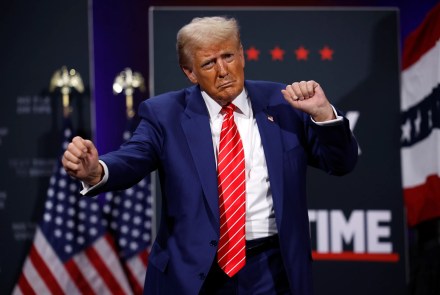As President-designate Donald Trump prepares to take office in January 2025 following his victory in the 2024 US election, global discussions about the implications of his second term are intensifying. His victory has sparked intense reactions—supporters see his leadership as a return to national strength, while critics raise concerns over issues like immigration, trade policies, and relations with China. With a strong focus on “America First” policies, Trump’s new presidency is expected to bring significant changes not only within the US but also to the broader global landscape.
Immigration Overhaul: Deportations and Visa Restrictions
One of the most contentious aspects of Trump’s upcoming presidency is his firm stance on immigration. His promise to carry out large-scale deportations and introduce stricter regulations for legal immigration is expected to be a focal point of his second term. The already difficult process for legal migration to the US., particularly through the H-1B visa program, will likely become even more restrictive under his administration.
Dr Aparaajita Pandey, Assistant Professor at Amity University (UP), noted that Trump’s immigration policies could push more people to seek illegal routes to enter the US. “Trump’s push for stricter visa requirements and mass deportations would lead to even more complications at the borders. Not only will this impact legal migrants, but it could also fuel greater violence and instability along the US-Mexico border,” she said.
With increasing restrictions, Trump’s policies are expected to drive up the number of people attempting to enter the US illegally, creating both social and security challenges.
A Transactional Foreign Policy: Trade and Economic Relations
Trump’s foreign policy approach remains rooted in his “America First” doctrine, which focuses on putting US interests above multilateral concerns. This transactional mindset is likely to see a return to protectionist economic policies, including the imposition of higher tariffs and trade barriers. For many countries, this could complicate trade relations, especially with the US.
Shashi Tharoor, Congress MP and Chairperson of the Parliamentary Standing Committee on External Affairs, commented on the potential impact of Trump’s trade policies on India, saying, “If India applies tariffs on US goods, we can expect a tough response from Trump’s administration. This could hurt Indian companies that export to the US. We need to prepare for a more challenging trade environment.”
Countries like India will have to navigate these complex dynamics while engaging with Trump’s administration, balancing trade interests with the president’s strong focus on protecting US industries.
US-China Relations: A Key Area of Tension
A hallmark of Trump’s foreign policy during his first term was his combative stance against China, and this is unlikely to change during his second term. Trump is expected to continue his tough rhetoric and policies toward China, particularly regarding trade imbalances, technological competition, and security concerns in the Indo-Pacific.
While some countries may welcome Trump’s firm approach to China, especially India, which has its own concerns about Chinese aggression, Dr Pandey warns that the global consequences of escalating US-China tensions could be destabilizing. “A more aggressive US policy toward China could benefit countries like India strategically, but it also risks creating a volatile global economic environment,” she said.
In particular, India’s alignment with the US against China in the Indo-Pacific region will be an area to watch, as this could strengthen strategic ties, but it could also lead to challenges in managing relations with China. This is especially important as BRICS is rapidly becoming a group of countries that have a heavy tilt towards China.
“It is logical to think that more countries especially in the western hemisphere would look towards China and in some cases Russia for support. Except for some like Javier Milei, the Argentine President who has stated that he is looking forward to the Trump victory,” she added.
The Global Ripple Effect: Allies and Adversaries
Trump’s second term is likely to trigger a realignment of global politics. His isolationist policies could strain traditional alliances, particularly with European nations, that have long relied on the US for security and economic cooperation. On the other hand, nations in Latin America and parts of the Middle East may find Trump’s leadership style more in tune with their national interests.
“Trump’s policies are often seen as transactional, where he asks, ‘What can you do for me?’ This could affect how the US interacts with global allies,” Tharoor explained to media persons in Parliament Annexe on Wednesday. While some nations may welcome Trump’s strong stance on national security and economic competition, others, especially in Europe, may find it harder to work with the US under his administration.
Immigration and Deportations: A Massive Undertaking
Trump’s commitment to mass deportations will likely be one of the defining features of his second term. He has repeatedly promised to remove millions of undocumented immigrants from the US, a task that is both politically and logistically challenging. This effort could involve a significant expansion of immigration enforcement agencies, including the US. Immigration and Customs Enforcement (ICE).
The logistics of carrying out such a massive operation would require more resources than the US immigration system currently possesses. Moreover, Trump’s administration will need to secure cooperation from other countries to take back their citizens, a challenge his first term highlighted.
While advocates for immigration reform warn against the humanitarian costs of such policies, Trump’s supporters see these actions as necessary to maintain US sovereignty and protect American jobs.
The Road Ahead: A Divisive Future
Countries like India, which have already had significant interactions with Trump’s administration, will have to continue adapting to his “America First” agenda while navigating the complexities of global diplomacy.
Tharoor’s comments offer a glimpse into India’s strategy moving forward: “We know what to expect from Trump. His focus is on what benefits the US., and it’s clear that countries will need to negotiate accordingly. We’ll have to keep that in mind as we engage with him again.”
